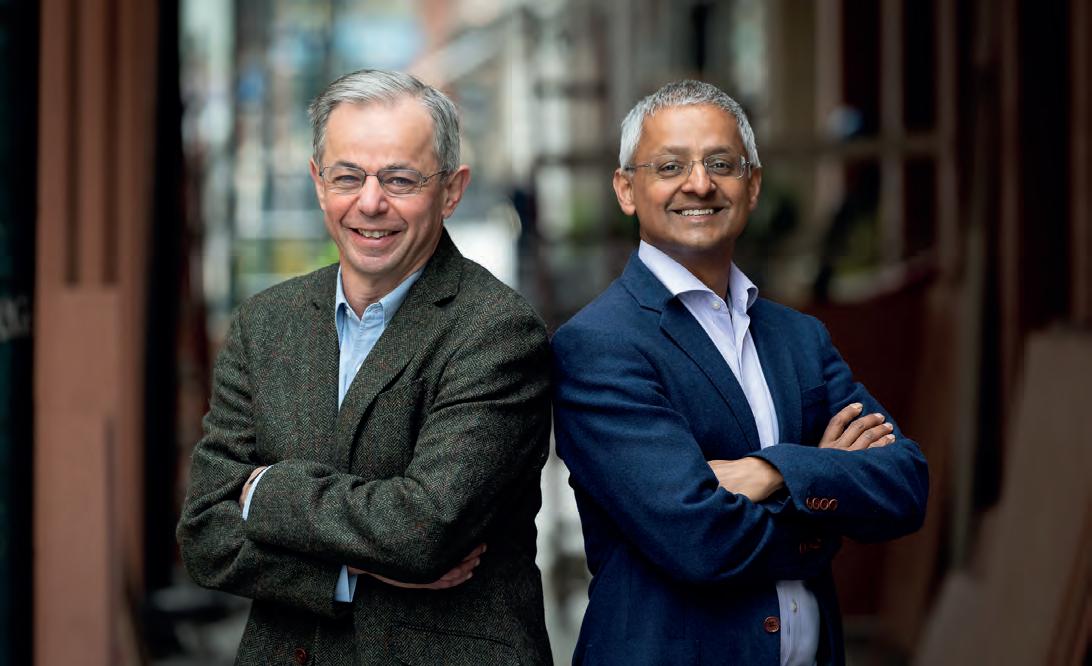
1 minute read
More kudos for DNA sequencing revolution _________________________________________________________
In September Professors Sir Shankar Balasubramanian and Sir David Klenerman were awarded the 2022 Breakthrough Prize in Life Sciences for their development of Next Generation DNA sequencing.
Shankar and David, who share the prize with Pascal Mayer from the French company Alphanosos, co-invented Solexa-Illumina Next Generation DNA Sequencing (NGS), technology that has enhanced our basic understanding of life, converting biosciences into ‘big science’ by enabling fast, accurate, low- cost and large-scale genome sequencing – the process of determining the complete DNA sequence of an organism’s make-up.
The bene ts to society of rapid genome sequencing are huge. The almost immediate identi cation and characterisation of the virus which causes COVID-19, rapid development of vaccines, and real-time monitoring of new genetic variants would have been impossible without the technique they developed. The technology has had – and continues to have – a transformative impact in the elds of genomics, medicine and biology. One measure of the scale of change is that it has allowed a million-fold improvement in speed and cost when compared to the rst sequencing of the human genome. In 2000, sequencing of one human genome took over 10 years and cost more than a billion dollars: today, the human genome can be sequenced in a single day at a cost of less than $1,000. More than a million human genomes are sequenced at scale each year, thanks to the technology, meaning we can understand diseases much better and much more quickly.
Earlier this year, Shankar and David were also awarded the Millennium Technology Prize. Together they co-founded the company Solexa to make the technology available to the world. What could be a better example of turning research into a real-world application that can improve lives?










